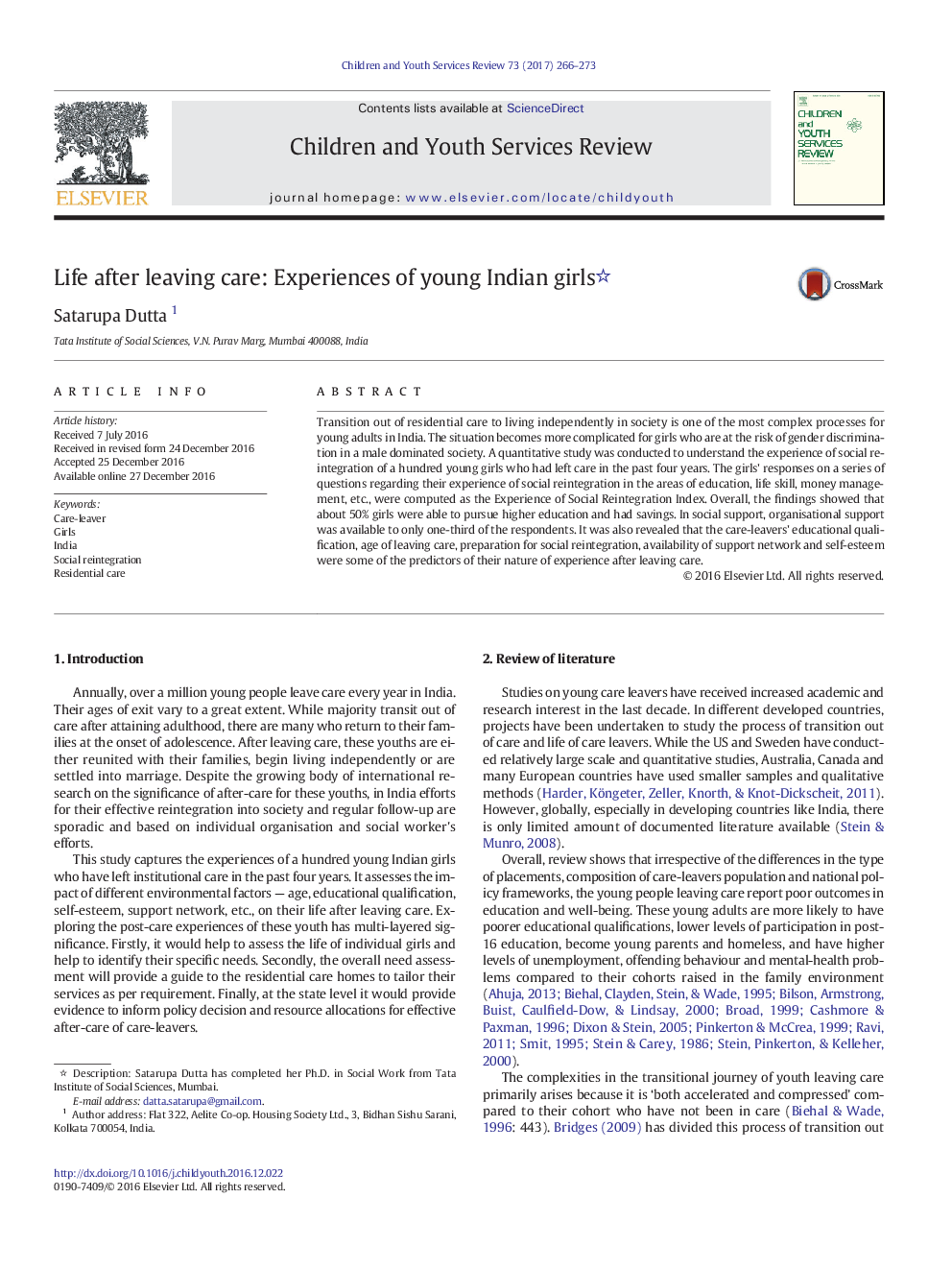ترجمه فارسی عنوان مقاله
زندگی پس از ترک مراقبت: تجربیات دختران جوان هند
عنوان انگلیسی
Life after leaving care: Experiences of young Indian girls
| کد مقاله | سال انتشار | تعداد صفحات مقاله انگلیسی |
|---|---|---|
| 91701 | 2017 | 8 صفحه PDF |
منبع

Publisher : Elsevier - Science Direct (الزویر - ساینس دایرکت)
Journal : Children and Youth Services Review, Volume 73, February 2017, Pages 266-273
ترجمه کلمات کلیدی
مراقبت از بین بردن، دختران، هند، اجتماعی مجدد، مراقبت مسکونی،
کلمات کلیدی انگلیسی
Care-leaver; Girls; India; Social reintegration; Residential care;
ترجمه چکیده
انتقال از مراقبت های مسکونی به زندگی مستقل در جامعه یکی از پیچیده ترین فرآیندهای جوانان در هند است. وضعیت برای دخترانی که در معرض تبعیض جنسیتی در جامعه تحت سلطه مرد هستند، پیچیده تر می شود. یک مطالعه کمی برای درک تجربه ادغام اجتماعی یکصد دختر جوان که در چهار سال گذشته مراقبت از خود را داشته است، مورد بررسی قرار گرفت. پاسخگویی دختران به مجموعه ای از سوالات در مورد تجربه خود در رابطه با ادغام مجدد اجتماع در زمینه های آموزش و پرورش، مهارت های زندگی، مدیریت پول و غیره، به عنوان تجربه شاخص بازسازی اجتماعی محاسبه شد. به طور کلی، یافته های نشان می دهد که حدود 50٪ دختران قادر به ادامه تحصیلات عالی و پس انداز بودند. در حمایت اجتماعی، تنها یک سوم از پاسخ دهندگان پشتیبانی سازمانی داشت. همچنین معلوم شد که مدارک تحصیلی مهاجرین مراقب، سن ازدواج مراقبت، آماده سازی برای ادغام مجدد اجتماعی، دسترسی به شبکه پشتیبانی و اعتماد به نفس، برخی از پیش بینی کننده های ماهیت تجربه خود پس از ترک مراقبت بودند.

